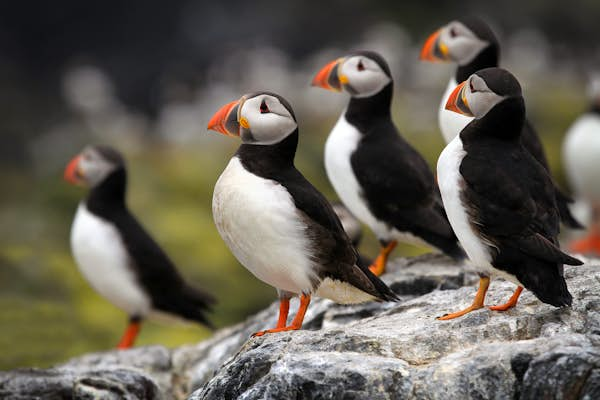Scotland often feels bigger than it is. That’s in part because of its impact on the world – think Edinburgh’s cultural clout and or Speyside’s famous whiskies – but it’s also because of the sheer range of things to do here.
Two fascinating, but very different, cities dominate Scotland’s central belt, the expansive Highlands feature some of the world’s most beautiful landscapes, while islands pack in wildlife and echoes of the past. There are fine sights all over the country, but these are some of the top experiences in Scotland.

1. Experience the creativity of the Edinburgh Festival
The world’s largest arts festival transforms Scotland’s capital in August. Everywhere turns into a venue (literally: swimming pools, fudge shops and public toilets have featured in recent years), the streets throb with performers and festival-goers and pubs are packed until the small hours.
The Fringe, International Festival and Military Tattoo are the biggest events. If you want to see popular shows, booking early is essential, but there’s plenty of diversity beneath the headlines – seek out smaller venues for a unique experience that will make you feel you’ve been in a different city to the crowds.
Local tip: Missed out on tickets for the Royal Edinburgh Military Tattoo? Head to the top of Royal Mile and watch the troops parade down Castlehill, with bagpipes, brass sections, and colorful costumes, after the main performance at 10.30pm each night.
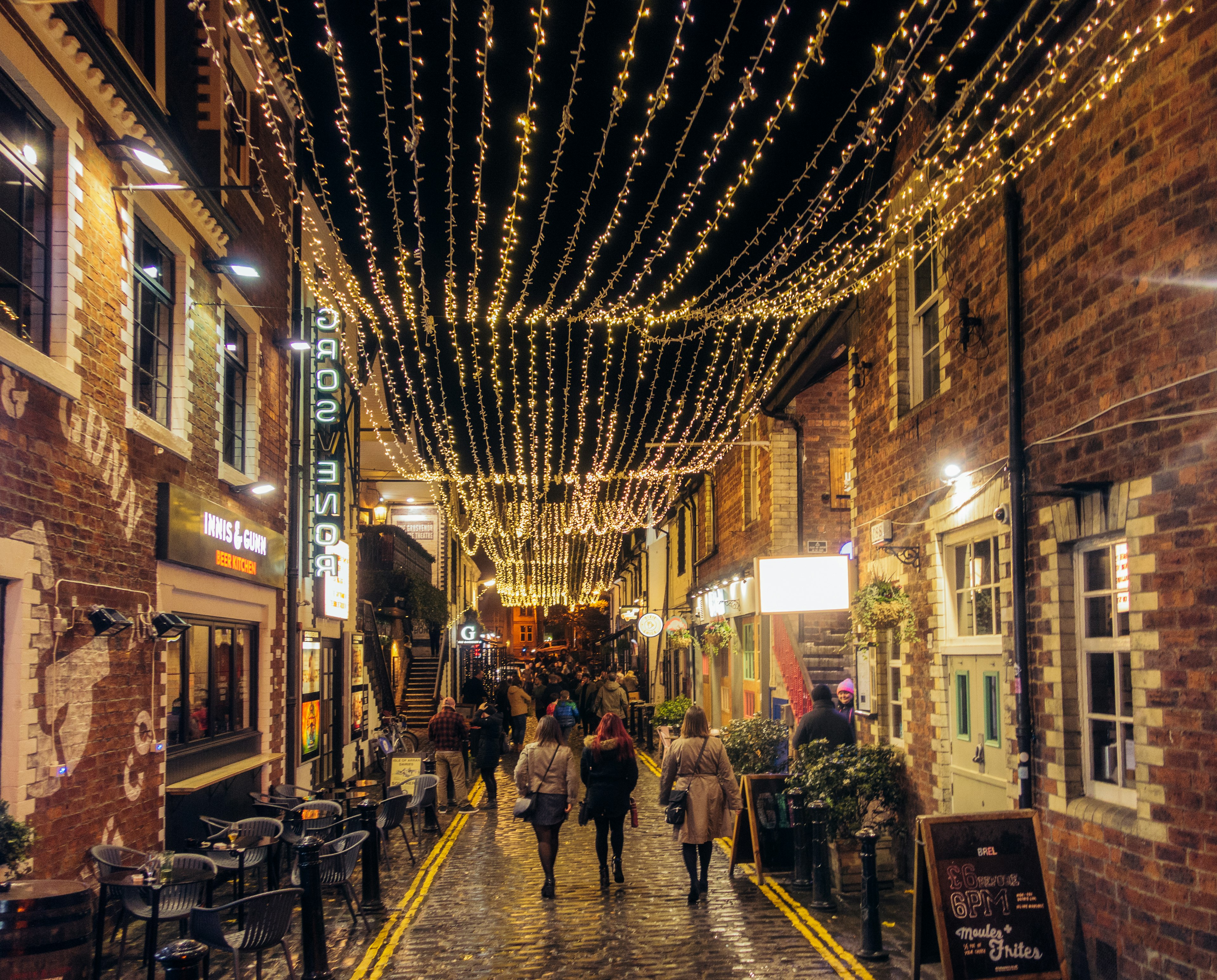
2. Get swept away by the music in Glasgow
By day, Glasgow’s grand architecture and resurgent museums are more than worth your time. But you may have the most fun at night, when glorious local scenes come alive and visitors to the city are treated with warm curiosity. Pubs host folk gigs, clubs judder to house and techno and the alt-rock scene bulges with talent. You can check out indie acts at King Tut’s, bounce on a historic ballroom floor at the Barrowland, check out a folk session at the Ben Nevis or get a sweat on at the Sub Club, which has been a temple to electronic music for over 30 years.
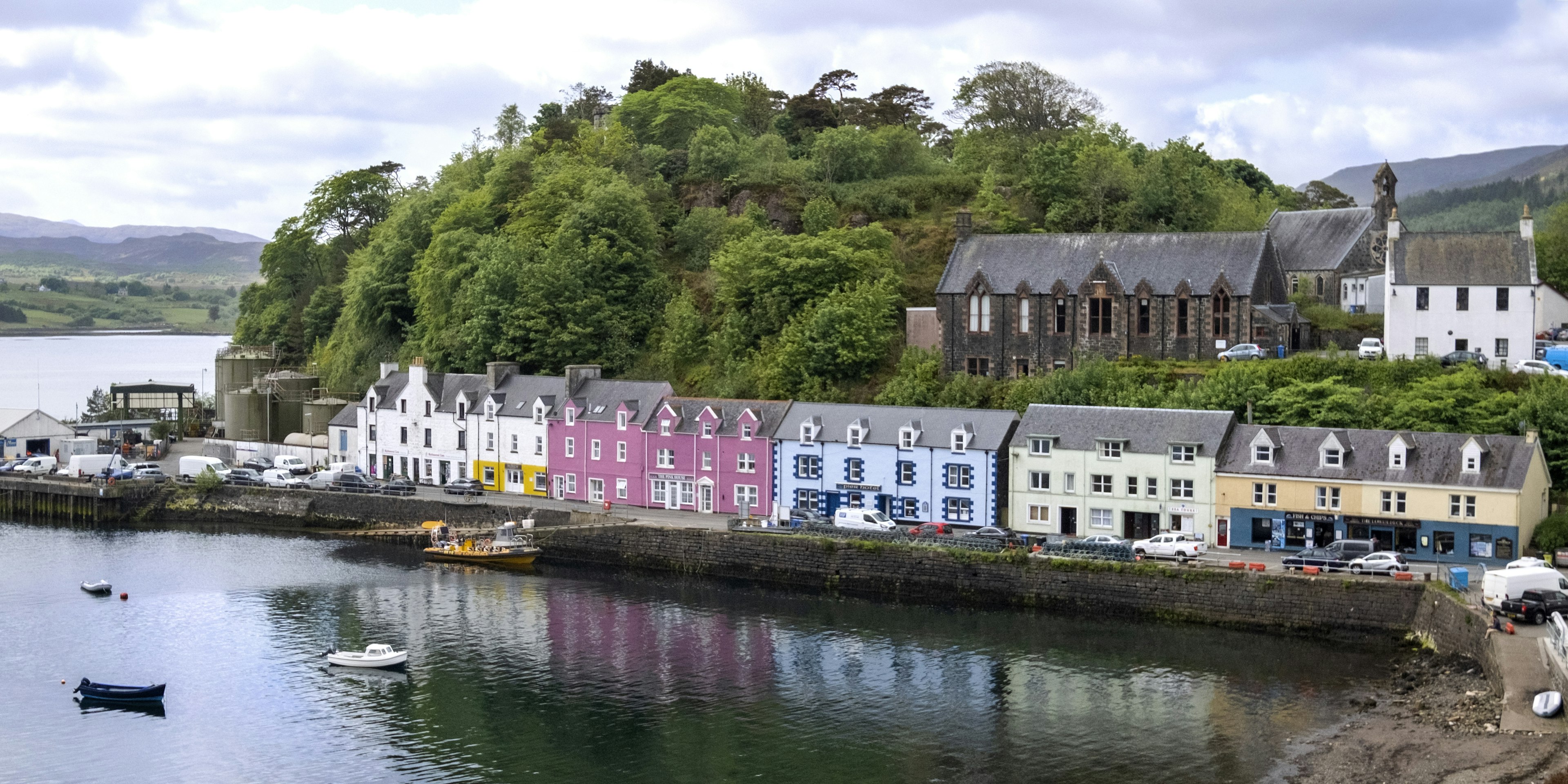
3. Find your own highlights on Skye
With its grand peaks, Gaelic culture and windswept beauty, Skye is the main draw in the Highlands. Rather than trying to cram its many highlights into a single itinerary – and risking getting stuck in a tourist traffic jam as you do so – it can be worth getting your perspective on this special island by choosing the part that most suits you and staying for a few days.
That might mean climbing the knife-edge ridges of the Cuillin Hills, exploring basalt sea stacks on the Trotternish Peninsula, eating roasted hake or devilled pigeon at the Michelin-starred Three Chimneys, or sipping ale at sunset on the little-visited Waternish Peninsula.
Planning tip: Stagecoach operates the main bus routes on the island, linking all the main villages and towns, but you’ll need your walking shoes if you want to go further afield.
4. Take in the lonely peaks of Assynt
Assynt, in the far northwest of Scotland, feels like a land apart. Here, isolated sandstone peaks rise like great monuments from the boggy moorland, giving the landscape an epic eeriness, and meaning the views from the top can – weather, of course, permitting – stretch for miles.
There are some excellent scrambling routes for which you’ll need some experience and a head for heights. An Teallach (1063m/3486ft) has a top-of-the-world traverse, Suilven (723m, 2,372ft) is a long, remote, broken-backed ridge, while Stac Pollaidh (612m/2008ft) reaches up like a ruined crown. It’s also the most accessible of the three. The coast here is also great for sea kayaking.
Local tip: The views from the roads that wind through this wilderness can be almost as good as the ones from the summits.
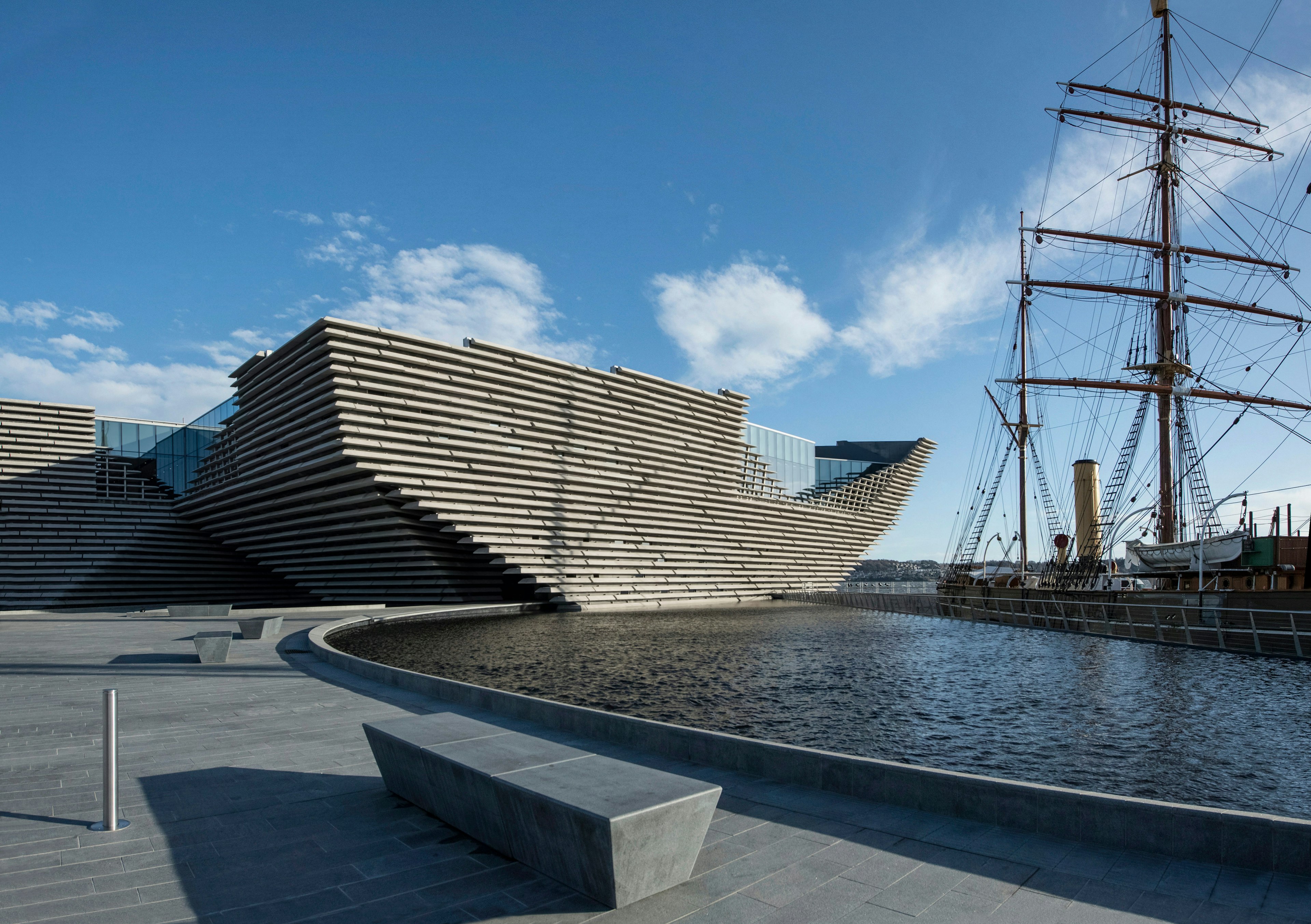
5. Soak up the culture on Dundee’s waterfront
Dundee’s docks once exported jute (a fiber used in textiles) around the world, but industrial decline in the 1980s hit the area hard. Regeneration came first in the form of the restored 1901 ship Discovery, which explored the Antarctic under legendary Captain Robert Falcon Scott and was built to withstand being frozen into the icepack.
In 2018, it was joined by V&A Dundee, a state-of-the-art museum whose slatted exterior looks like a spaceship crossed with a sea cliff. In between checking out top-notch visiting exhibitions at the V&A and stepping aboard Discovery, you can explore the city’s textile traditions at the Verdant Works or steer your own course through Dundee’s nautical heritage by going paddleboarding on the Tay.
6. Taste whisky in Speyside
Speyside, in Northeast Scotland, isn’t just about booze: there’s salmon fishing, historic railways and golf courses to experience in these parts. But most visitors are here for the region’s sweet and fragrant whiskies.
Marvel at the vast modern vats that make the stuff, the pleasingly battered casks (often previously used for sherry) that help give batches their unique flavor, and the streams and rivers that run down from the hills and into the distilleries, bringing a touch of local terroir.
There are plenty of great things to do here: you can stay overnight in classic lodges and sup your drinks in hushed, book-lined lounges, or stay at homely B&Bs where the morning smells of kippers and black pudding should add zest to any hangover you might somehow have developed.
Local tip: Speyside is home to the highest number of distilleries in Scotland, the most famous of which is Glenfiddich.
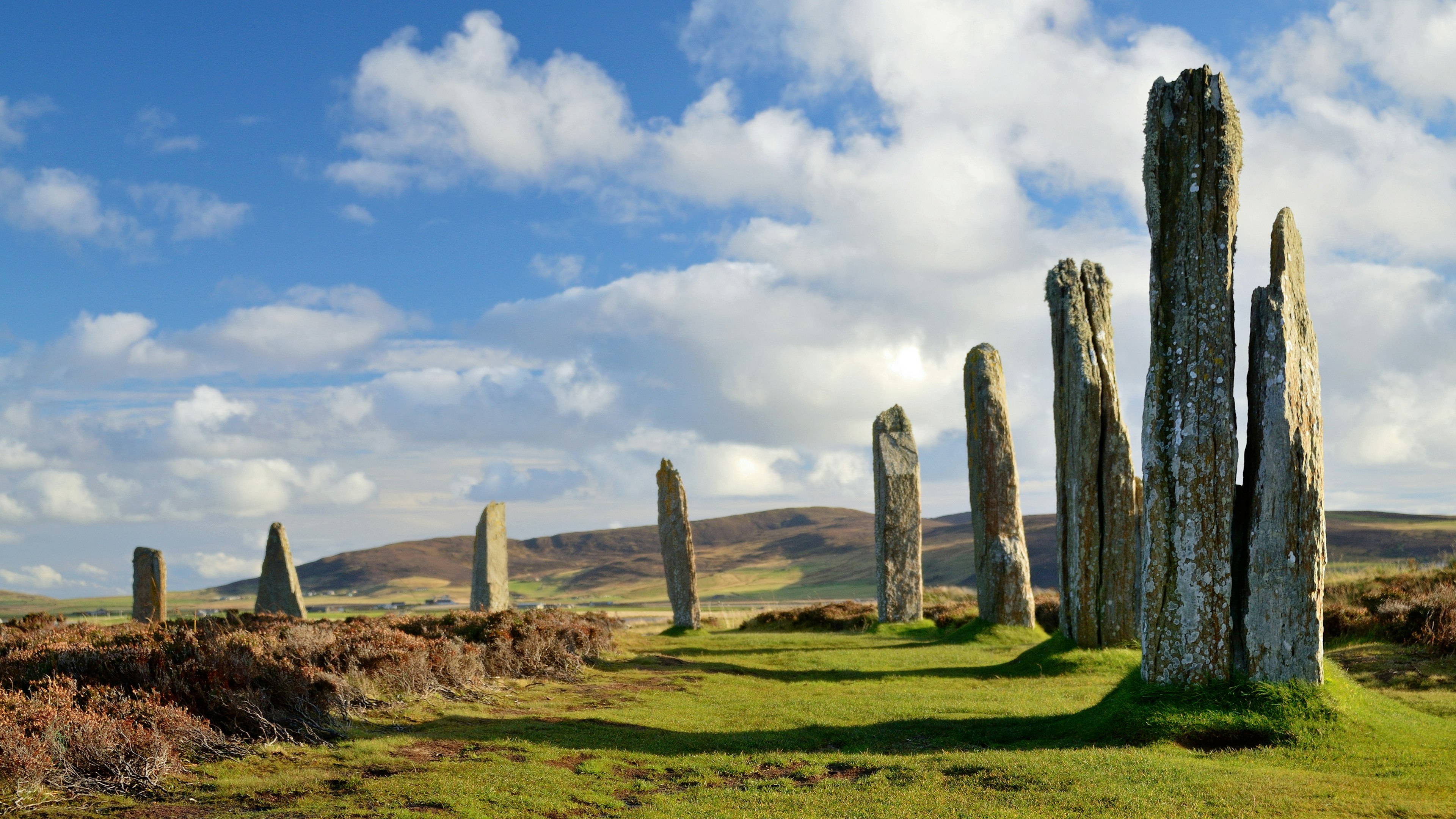
7. Learn about Stone Age Orkney
The archipelago of Orkney, an hour’s ferry ride from Scotland’s northeast tip, has farmland, fishing villages and some of Europe’s greatest Stone Age remains. Skara Brae, a 5000-year-old settlement that lay preserved under sand dunes till 1850, brings the day-to-day world of Neolithic people to brilliant life.
Houses are connected by tunnels and filled with furniture – beds, fireplaces, dressers and cupboards. The stunning nearby tunnel tomb of Maeshowe, meanwhile, reveals this ancient people’s spiritual side. With its standing stones, giant flocks of seabirds and the mighty sea all around, modern Orkney remains a wild, evocative place.
8. Join the island adventures on Mull
Visiting the Hebrides is highly recommended. The islands are scattered off the west coast, one foot in Scotland, the other in the Atlantic. Mull is one of the finest of these islands, and once you get past its appealing towns (capital Tobermory’s chocolate-box harbor is something else), you can use it as a base for the wonderfully accessible outdoors. There are mountains, cliffs and achingly beautiful beaches, but a boat trip offers the greatest pleasures.
Nearby isles include Iona (whose abbey was a vital staging post in Christianity’s advance through Britain), Staffa (home to surreal pillars that inspired Felix Mendelssohn and Pink Floyd) and Lunga (where thousands of impossibly appealing puffins nest in spring and summer). It’s an especially fun thing to do for families – kids will love the excitement of the short boat trips.
Detour: There are dozens of operators around the coast offering whale-watching boat trips lasting from a couple of hours to all day; some have sighting success rates of 95% in summer.
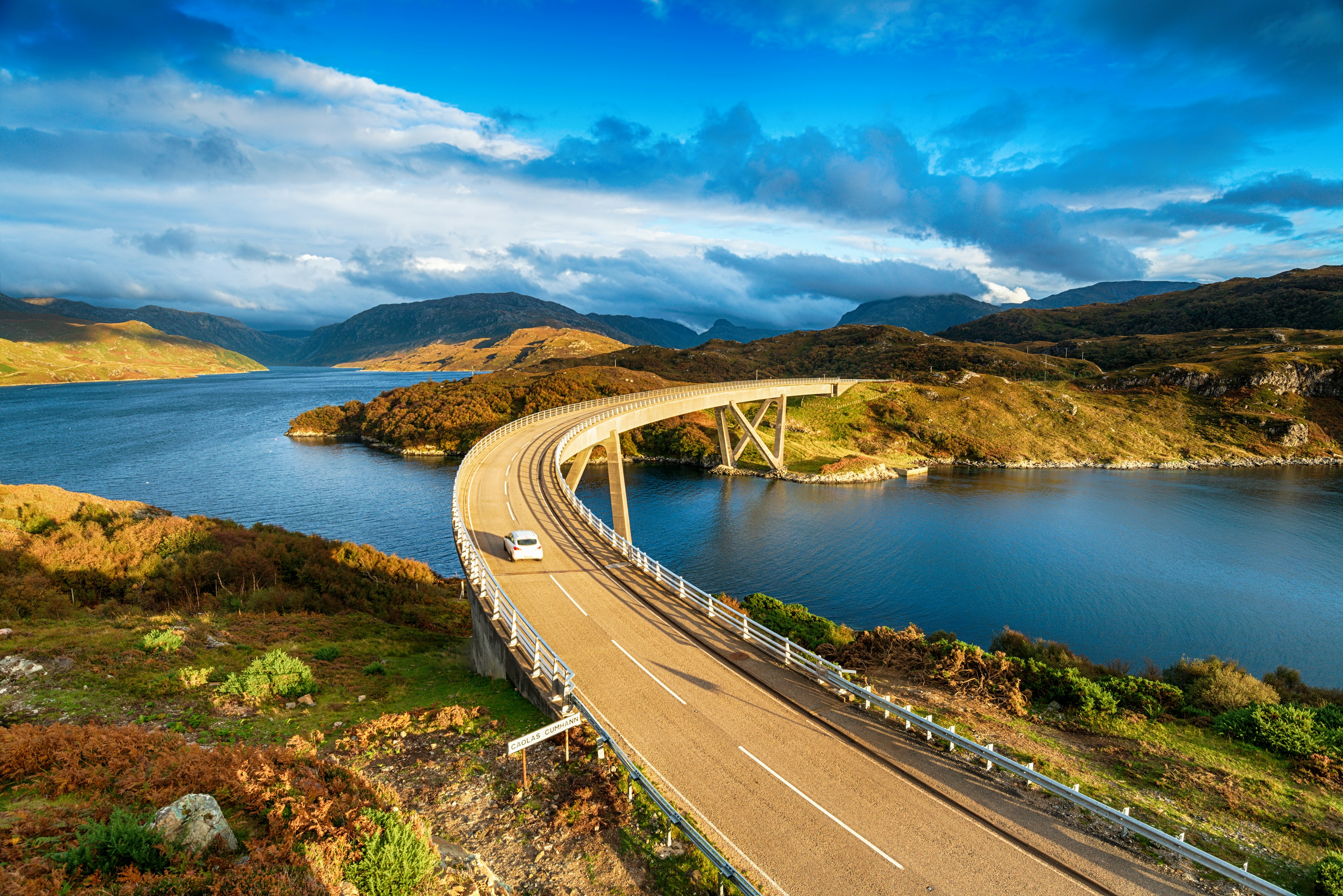
9. Drive the North Coast 500
Scotland’s most famous driving route starts in Inverness, the Highlands’ likable capital, and makes a great loop around the dramatic west coast and the wild, remote top of Scotland. You’ll pass superb seafood restaurants, distilleries (not all for whisky), villages, farmhouses and pubs.
But the star here is the scenery: lochs that look like they go on forever, huge sea cliffs, rugged mountains, lonely beaches, machair grassland and hills topped with heather. It gets busy in summer: the best time to go is the shoulder season, and a week will allow you to take decent pit stops, breathe in the sea air and treasure the shifting light and the contours of the land. If this doesn’t appeal, Scotland has other amazing road trips to get you exploring.
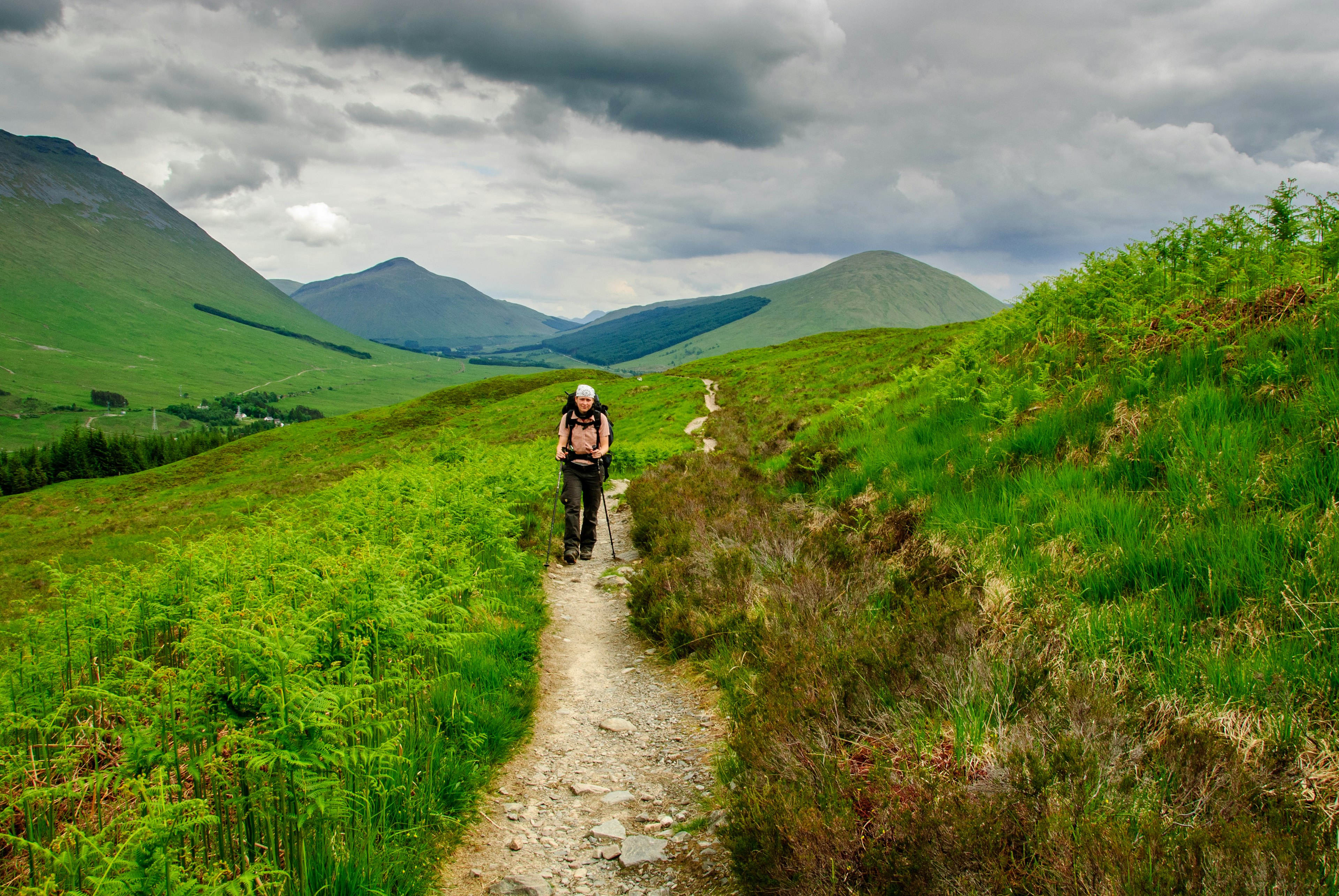
10. Hike the West Highland Way
The West Highland Way takes you from the Lowlands to the Highlands, from the outskirts of Scotland’s biggest city, Glasgow, to the base of Britain’s highest mountain, Ben Nevis. It passes rivers, lochs, mountains and moorland, traveling on old cattle roads and railway lines – meaning that this is one epic journey on which it’s hard to get lost. For the more adventurous hiker, there are other less well-trod paths to also investigate.
The 96-mile (155km) West Highland Way takes most hikers around a week, although it’s possible to just take on parts of it. You can make it easier, by asking a tour company to drop your baggage at your hotel each night; or harder, by wild camping all the way and rounding it off with the climb up Ben Nevis (4413ft/1345m).
Local tip: Pre-book accommodation or campsites during the European summer as this is a popular through-hike. Some pubs and inns will only serve food to guests who are staying, so if you are wild camping make sure you carry enough food for meals between major towns.
11. Explore historic Edinburgh
Outside of festival time, Edinburgh is one of Britain’s most spectacular cities with plenty of things to do, and its Old and New towns provide a luminous history lesson. The Old Town is crowned by a mighty castle, from where the cobblestoned Royal Mile descends past tangled medieval wynds (alleys) and cozy pubs to the Scottish Parliament.
The neighboring New Town, a mere 200 years old, has Neoclassical streets arranged into an elegant pattern of squares, crescents and boulevards. The city’s hilly nature means that wherever you go, a new view can surprise you. The National Museum is the best of many, although you can also get a vivid sense of Edinburgh’s rich history just by strolling its streets.
This article was first published Oct 5, 2021 and updated Oct 15, 2024.

